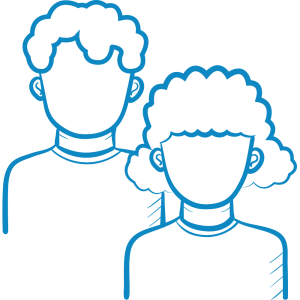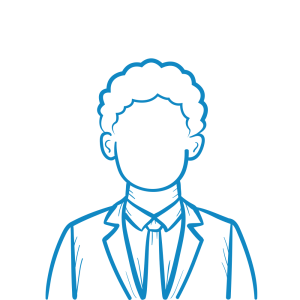Treating Psychopathy
And other disorders of aggression, including Antisocial Personality Disorder, Conduct Disorder, Oppositional Defiant Disorder, and Callous-Unemotional traits.
This information should not be used to diagnose or treat. It is not meant to take the place of consultation with a healthcare professional. If you have concerns, you should contact your healthcare provider for a screening.
YES, DISORDERS OF AGGRESSION ARE TREATABLE.
Please see text, at the bottom of this page, for the differences between treatment, treatable, cure and curable.

And while there’s a variety of ways to improve symptoms, there’s still much to be done to develop more effective options.
The most successful approaches to treating psychopathy are multimodal. This means they include multiple approaches at once, including psychotherapy, behavioral skills training, and recognition of the important roles of family, school, peers, and the community. They may also incorporate medication.
Below, we provide more information about all of these treatment options.
Treatment Options For Children and Teenagers
The most effective type of treatment for children with conduct disorder, oppositional defiant disorder, and/or psychopathy is family-focused therapy. In family-focused therapy, parents work directly with a clinician who trains them to use specialized approaches to manage their child’s symptoms and behavior at home.
Research shows that this type of therapy is much more effective for children with behavior problems than therapy where the therapist works one-on-one with the child. It is also more effective than medication.
There are several forms of family-focused therapies that research has shown are effective in improving symptoms in children with conduct disorder, oppositional defiant disorder, and/or psychopathy.

Family-focused therapies are appropriate for children and adolescents with psychopathy.
For some children medications or residential treatments may also be important for helping children manage their symptoms and behavior.

Residential treatment programs are appropriate for some children and adolescents with psychopathy if home-based treatment methods have not been successful.

Medications are appropriate for some children, adolescents and adults in combination with other forms of therapy. Medication should not be a first-line treatment.
Treatment Options For Adults
In adults with psychopathy or related disorders (like Antisocial Personality Disorder) symptoms can be reduced and quality of life improved by several forms of specialized individual-focused therapy, as well as, in some cases, medication.

Individual-focused therapies may be appropriate for people of any age with psychopathy.

Medications are appropriate for some children, adolescents and adults in combination with other forms of therapy. Medication should not be a first-line treatment.
Finding a Therapist
It can be extremely challenging to find a clinician who is comfortable treating psychopathy or serious conduct problems.
It is important to start by finding a clinician who is experienced using one of the recommended forms of therapy for psychopathy. View Providers.
To locate a therapist, you can start by asking your physician, school counselor, or social worker for recommendations. Make sure to emphasize that you are seeking a clinician with specific expertise using effective methods to treat psychopathy or serious conduct problems. You can also consult an online therapist search engine, such as the ones offered by Psychology Today or the American Psychological Association.
In the Psychology Today search engine enter your ZIP code and then in the Issues menu click Show more issues then select one or more of these options: Anger Management / Behavioral Issues / Narcissistic personality. In the Types of Therapy menu you can also select one or more of these options, all of which are backed by scientific evidence: Cognitive Behavioral (CBT) / Forensic psychology / Parent child interaction (PCIT).
For the American Psychological Association search engine, enter your ZIP code and then in the Issues menu click See More and then select one or more of these options: Anger management / Behavior problems / Firesetting / Forensic / Personality disorders / Violence. In Treatment Methods you can select one or more of these options: Cognitive/Behavioral / Forensic evaluation / Parent Guidance.
When scheduling your meeting or during the initial meeting, be sure to ask the therapist if they are informed about current research and best practices for treating psychopathy. Ask the therapist about their experience using the treatment programs described above. Ideally they will have prior experience with one of these programs or can refer you to another therapist who does. If a therapist with prior expertise is not available, an experienced clinician who is willing to seek more information about these therapeutic programs can also be effective.
Those seeking treatment may find it helpful to bring the results of the online psychopathy screening to the initial visit with the therapist, as well as this worksheet.
We recognize how difficult it is for parents to find qualified and experienced clinicians and treatment programs. Parents may find it hard to find a therapist if Conduct Disorder with Limited Prosocial Emotions (CD-LPE, a diagnosis that indicates high risk for psychopathy) is being considered as a diagnosis. We are working to solve this problem. We are crowd-sourcing the first ever database of clinicians and treatment programs with expertise in treating psychopathy. You can help! Learn how.
Barriers to Treating Children
Families seeking treatment for children with conduct disorder, oppositional defiant disorder, and psychopathy frequently encounter barriers to effective treatment. These include:
- Lack of knowledge about these disorders or how to effectively treat them among many healthcare providers.
- Stigma attached to these diagnoses for both children and families.
- Being blamed for the child’s behavior problems.
- The common myth that these disorders do not respond to treatment, which contributes to the unwillingness of some insurers to cover treatments for conduct disorder, oppositional defiant disorder, or psychopathy.
- A lack of sufficient community support for families raising a child with serious behavior problems, which can make it difficult for families to keep their child in the community for treatment.
- Limited available services outside of the juvenile justice or child welfare system. This means a child’s behaviors must become very serious before the child can access some treatments.
These and other barriers sometimes require parents to make difficult choices about how to access care for their child.
Barriers to Treating Adults
Individuals seeking treatment in adulthood also frequently encounter barriers to effective treatment. These include:
- The fact that many mental health professionals, including some clinicians, consider psychopathy to be frightening, disturbing and foreboding and some may be unwilling to treat it.
- Difficulty identifying clinicians with expertise and experience in treating adults with psychopathy and related disorders using empirically validated approaches.
- Distinctions between primary and secondary psychopathy, which require distinct treatment approaches.
- The fact that secondary psychopathy sometimes results from being shamed or humiliated. In some cases, people cope with a narcissistic collapse ( when shame is engendered by a failure and one feels exposed) by identifying with the aggressor, suppressing vulnerability, creating a callous exterior, and doing cruel things. If the shame, humiliation and feeling of exposure can be addressed therapeutically, it is possible that the psychopathic tendencies will abate.
Treatments to Avoid
When seeking therapeutic options, it is important to keep in mind that not all therapies are effective. Clinicians are not required by any accrediting body to use only therapies that have been demonstrated to be effective. This is why it is important for those seeking treatment to request specific, scientifically validated tested therapies.
